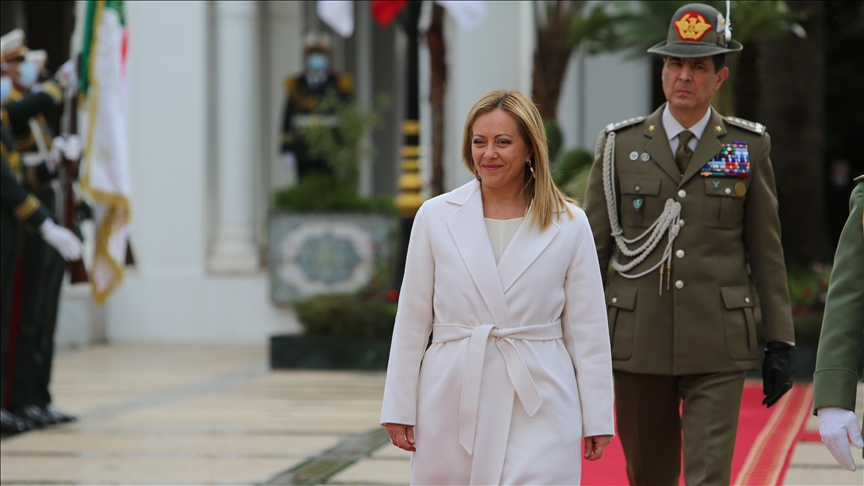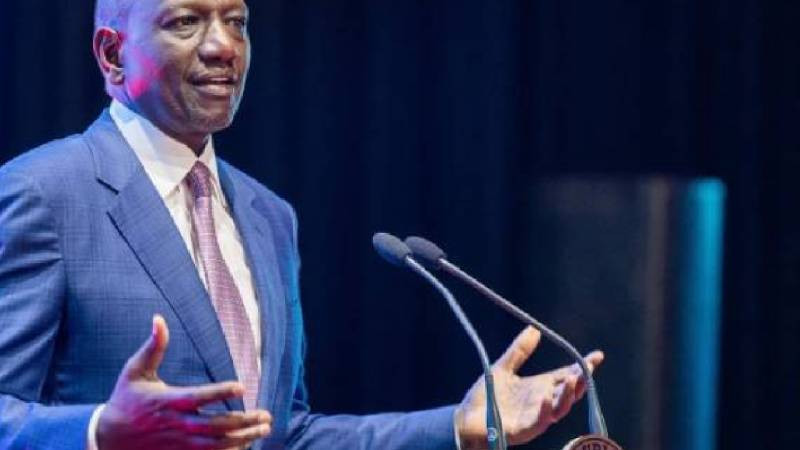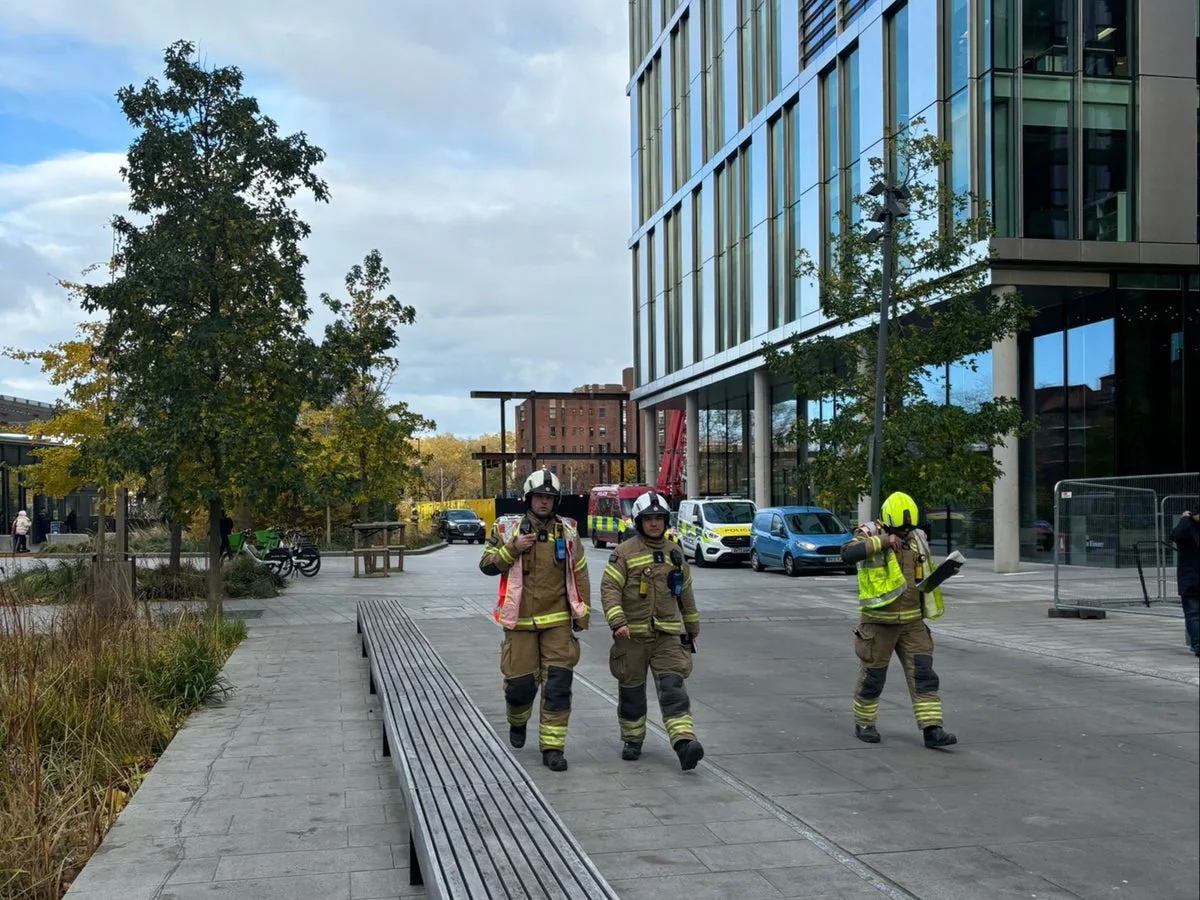- Details
- World
- 4386
Italian Prime Minister Giorgia Meloni (L) walks past honor guards during a welcoming ceremony by Algerian President Abdelmadjid Tebboune (not seen) at El Mouradia Palace, in Algiers, Algeria on January 23, 2023.
Italy’s growing clout in Tunisia and Algeria have forced France to pick Morocco as a strategic partner, says North Africa analyst Umberto Profazio
- Italy’s growing clout in Tunisia and Algeria have forced France to pick Morocco as a strategic partner, says North Africa analyst Umberto Profazio
- While Italy and France ‘don’t publicly fight each other, tensions continue behind the scenes,’ says Profazio of the International Institute for Strategic Studies
ATHENS
Italy is steadily increasing its influence in Tunisia and Algeria at the expense of French interests, according to a senior analyst on North African affairs.
The rivalry between Italy and France in the Mediterranean and North Africa has deep historical roots, extending back decades, said Umberto Profazio, a senior analyst at the International Institute for Strategic Studies (IISS).
This competition intensified during the Libyan conflict in 2019-2020, where Rome and Paris backed opposing factions, but in recent years, the two countries appeared to find common ground to minimize overt tensions as EU partners, Profazio told Anadolu.
However, this cooperation does not mean that their interests are still aligned, he added.
“The dynamics of the region are bringing the two countries against each other. Though they don’t publicly fight each other, tensions continue behind the scenes,” Progazio said.
He emphasized Italy’s strong strategic focus on Libya, driven by historical ties, geographical proximity, and significant economic and political interests in both its western and eastern regions.
This focus, he argued, frequently puts Italy at odds with other influential players, including France.
Italy’s expanding role in Algeria and Tunisia
Through Italy’s facilitation, Tunisia received EU funds in exchange for stemming migration flows to Europe, he said.
“However, these expanding relations between Italy and Tunisia have caused France to grow jealous, as Paris saw Tunisia as a former colony within its natural sphere of influence,” he said.
Profazio stressed that France’s growing criticism of Saied, particularly accusations of authoritarianism in the French press, should be understood within the context of this rivalry.
“They see Italy extending its influence in Tunisia and Algeria, and they are trying to fight against it, for example, by using the instruments of respect for human rights, respect for civil liberties, and the crackdown on the opposition in Tunisia,” he said.
France, Profazio asserted, should understand that Tunisia is now very dependent on Italy and Algeria.
He noted that Italy’s influence in Algeria has also intensified, particularly as it emerges as one of Rome’s main energy suppliers.
This dynamic has fostered a strategic triangle of cooperation between Italy, Tunisia and Algeria, further diminishing French sway in its former colonies, he added.
The Maghreb predicament
In response to its waning influence in Tunisia and Algeria, France has pivoted toward Morocco as a strategic partner, Profazio observed.
“The Maghreb now finds itself in this predicament, with France openly siding with Morocco by recognizing its sovereignty over Western Sahara, which would deepen the fault lines between France and Algeria,” he said.
Algeria, a major financial backer of Tunisia and one of Italy’s most significant energy suppliers, has taken note of this alignment, so this could further strain relations between France and Algeria, he added.
On whether Italy might eventually take a definitive position on Western Sahara, Profazio said Rome has so far avoided making such a declaration, despite growing support within the country for recognizing Morocco’s sovereignty over the disputed region.
The Western Sahara has been a source of tensions between Rabat and Algiers for some five decades. While Morocco claims sovereignty over the region, Algiers does not, but it supports the pro-independence Polisario Front, which claims the area as its territory.
The UN does not recognize the sovereignty claims of either the Polisario Front or Morocco, which took control of most of Western Sahara in 1975 after an agreement with Spain and Mauritania.
For Italy, Profazio believes its reluctance to use hard power is one of several challenges it faces in pursuing its interests in the Maghreb.
In addition, Italy, as a middle-sized power, often finds itself in a position where it has to cooperate with rivals, he argued.
“It is not in Italy’s interests to involve France and the EU in its actions in North Africa. But we must not forget that we are talking about middle-sized power, which cannot do much alone, so it often seeks the cooperation of its European rivals to counter non-EU powers,” said Profazio. By Ahmet Gençtürk, Anadolu Agency









